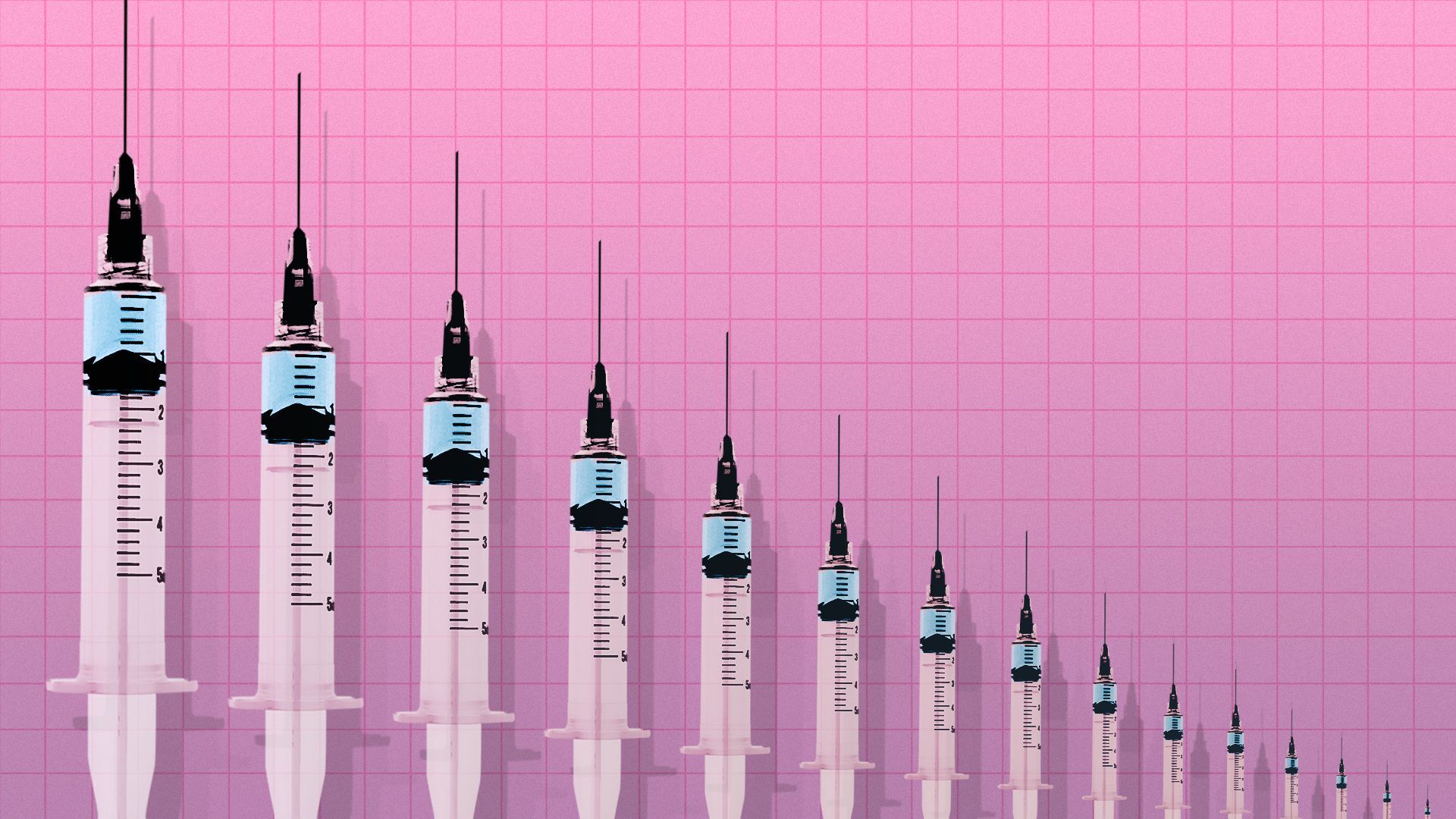CDC: Moderna vaccine most effective against hospitalization in U.S.
Add Axios as your preferred source to
see more of our stories on Google.

Illustration: Shoshana Gordon/Axios
Overall healthy adults with the Moderna COVID vaccine had 93% vaccine effectiveness against hospitalization over five months compared to those with 88% protection with Pfizer and 71% from the Johnson & Johnson vaccine, a new report out Friday from the CDC shows.
Why it matters: The report comes as the Food and Drug Administrations meets Friday to consider whether to endorse a contentious plan for booster shots among the fully vaccinated.
- The higher effectiveness of Moderna could be due to the higher mRNA content or the difference between the timing between doses, the authors note.
- Still, all three vaccines provided “substantial protection," the CDC says, despite both mRNA vaccines providing "more protection” than the J&J shot.
The big picture: The real-world data coincides with previous findings of how Moderna may maintain higher effectiveness over time than the other shots available in the United States.
- The waning effectiveness in Pfizer may raise future questions about whether the two mRNA vaccines should be treated the same way policy-wise, Axios' Caitlin Owens reports.
By the numbers: The sample size was from nearly 3,700 people at 21 hospitals in 18 states from March 11 to Aug. 15. Patients with immunocompromising conditions were excluded from the report.
- About 13% were fully vaccinated with Moderna, 20% were fully vaccinated with Pfizer and 3.1% had J&J.
- Vaccine effectiveness for those 14-120 days after the second dose of Moderna was 93% and dropped to 92% after about four months, the data show.
What they're saying: "Understanding differences in [vaccine effectiveness] by vaccine product can guide individual choices and policy recommendations regarding vaccine boosters," the study's authors wrote.
- "All FDA-approved or authorized COVID-19 vaccines provide substantial protection against COVID-19 hospitalization," they added.
